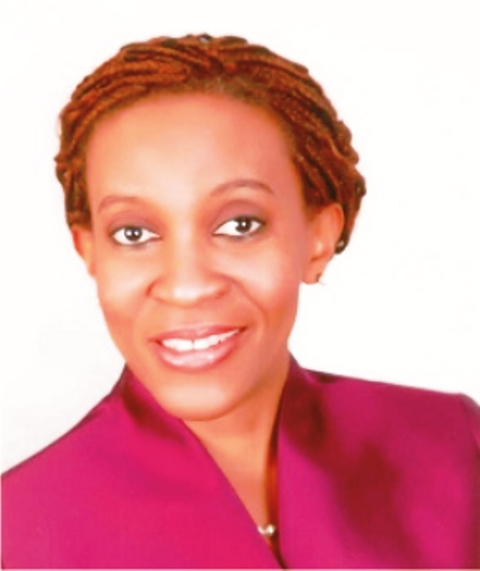Business
Women Empowerment Confab Opens In Abuja, July 14

The Abuja Chapter of
the Network of Entrepreneurial Women (NNEW) has embarked on an empowerment scheme for hundreds of women entrepreneurs in Nigeria.
The Chairperson of the chapter, Mrs Ekaette Umoh, told newsmen in Abuja, on Wednesday that the confab, slated for July 14, would open new opportunities for upcoming female entrepreneurs to turn the corner in their bids to become self-reliant.
She explained that NNEW, established by the Nigerian Employers Consultative Association, 11 years ago had been in the forefront of promoting women entrepreneurship.
Umoh said that NNEW had been working over the years to lift many Nigerian women out of the poverty loop and make them to overcome challenges in their business endeavours.
According to her, the body has been educating hundreds of women every year on how to forge strategic alliances for the growth of their businesses.
The chairperson said that the confab with theme “Giant Strides’’, would focus on innovative ways of creating multiple streams of income in the current tough economic climate in Nigeria.
“Speakers at the conference will enlighten participants on how to make tremendous leaps and overcome challenges in their businesses,’’ she stated.
Umoh disclosed that the Minister of State for Industry, Trade and Investment, Hajiya Aisha Abubakar, was expected to preside as guest of honour at the conference.
Other facilitators of the event, include the Chief Executive Officer of NAKACHI Consulting, Mr Sam Ikoku and the Chief Executive Officer of Agribusiness System and Technologies Ltd., Mr Adewale Ilesanmi.
The Head of Small and Medium Enterprise Banking of StanbicIBTC Bank, Mr Obinna Ukachukwu and Group Head, Products and Segments Group of Access Bank Plc., Mr Ope Wemi-Jones are also billed to share their experiences.
Similarly, leading women entrepreneurs, including Mrs Omololami Ajani of Wood-et al and Mrs Latifat Balogun of Hatlab Ice-Creams are to address the gathering on entrepreneurship issues.
Exhibitions, networking and specialised sessions have also been lined up as part of activities during the gathering.
Business
Agency Gives Insight Into Its Inspection, Monitoring Operations

Business
BVN Enrolments Rise 6% To 67.8m In 2025 — NIBSS

The Nigeria Inter-Bank Settlement System (NIBSS) has said that Bank Verification Number (BVN) enrolments rose by 6.8 per cent year-on-year to 67.8 million as at December 2025, up from 63.5 million recorded in the corresponding period of 2024.
In a statement published on its website, NIBSS attributed the growth to stronger policy enforcement by the Central Bank of Nigeria (CBN) and the expansion of diaspora enrolment initiatives.
NIBSS noted that the expansion reinforces the BVN system’s central role in Nigeria’s financial inclusion drive and digital identity framework.
Another major driver, the statement said, was the rollout of the Non-Resident Bank Verification Number (NRBVN) initiative, which allows Nigerians in the diaspora to obtain a BVN remotely without physical presence in the country.
A five-year analysis by NIBSS showed consistent growth in BVN enrolments, rising from 51.9 million in 2021 to 56.0 million in 2022, 60.1 million in 2023, 63.5 million in 2024 and 67.8 million by December 2025. The steady increase reflects stronger compliance with biometric identity requirements and improved coverage of the national banking identity system.
However, NIBSS noted that BVN enrolments still lag the total number of active bank accounts, which exceeded 320 million as of March 2025.
The gap, it explained, is largely due to multiple bank accounts linked to single BVNs, as well as customers yet to complete enrolment, despite the progress recorded.
Business
AFAN Unveils Plans To Boost Food Production In 2026
-

 News5 days ago
News5 days ago2026 Budget: FG Allocates N12.78bn For Census, NPC Vehicles
-

 Sports4 days ago
Sports4 days agoAFCON: Osimhen, Lookman Threaten Algeria’s Record
-

 Politics4 days ago
Politics4 days agoWike’s LGAs Tour Violates Electoral Laws — Sara-Igbe
-

 Politics4 days ago
Politics4 days agoRivers Political Crisis: PANDEF Urges Restraint, Mutual Forbearance
-

 Sports4 days ago
Sports4 days agoPalace ready To Sell Guehi For Right Price
-

 Sports4 days ago
Sports4 days agoArsenal must win trophies to leave legacy – Arteta
-

 Sports4 days ago
Sports4 days agoTottenham Captain Criticises Club’s Hierarchy
-

 Sports5 days ago
Sports5 days agoNPFL To Settle Feud between Remo Stars, Ikorodu City

